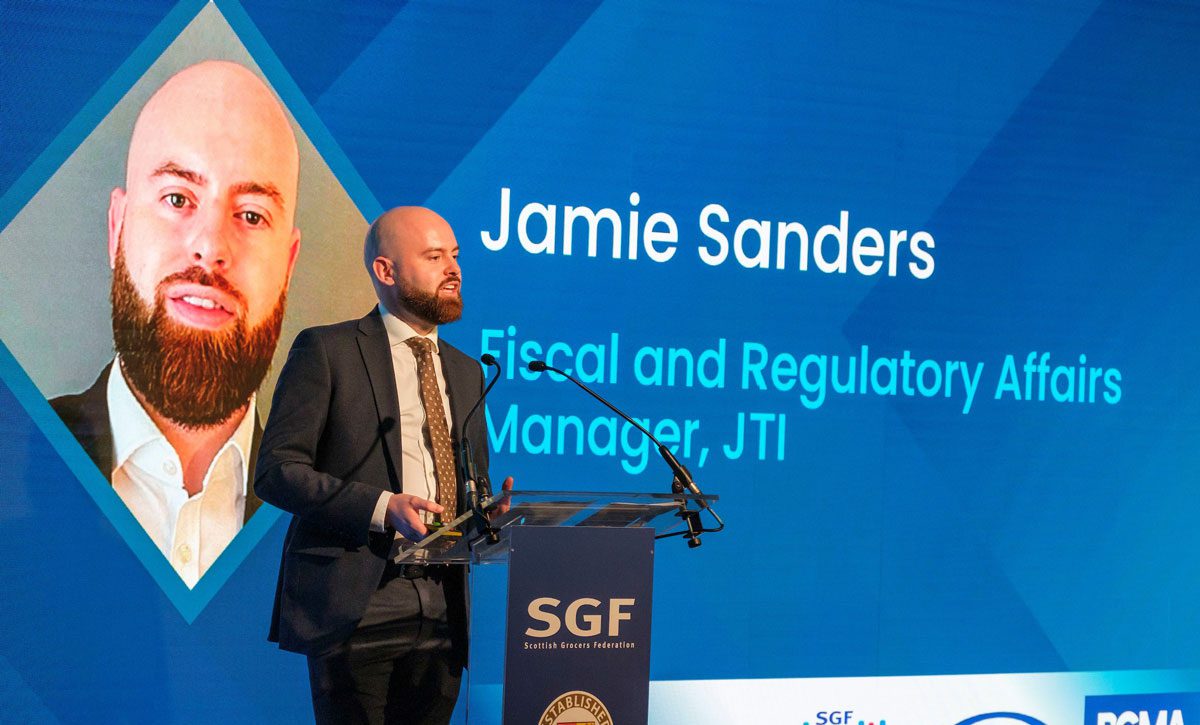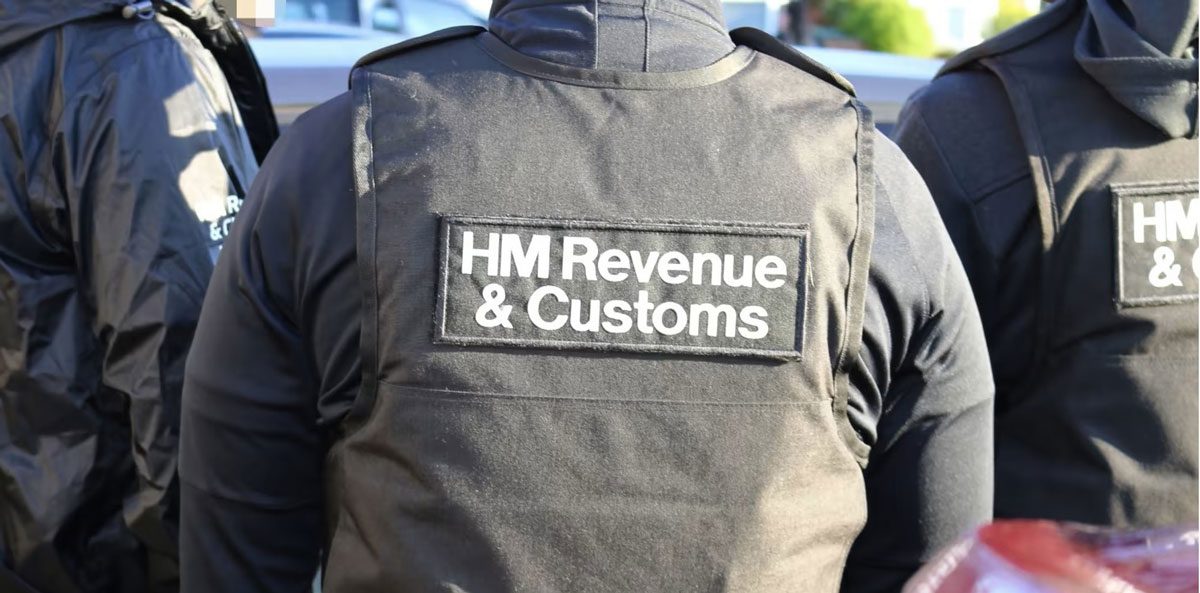JTI boss urges convenience retailers to take action

SCOTTISH convenience store retailers have been hearing why it is important for them to help crack down on illicit tobacco sellers.
The insights were provided by Jamie Sanders – public affairs manager for JTI UK – at the Scottish Grocers’ Federation annual conference.
Sanders highlighted the lost revenues to their businesses and the taxman, the links to organised crime and the threat posed to underage people by illegal traders.
A survey by JTI found 37% of smokers in Scotland had purchased illicit tobacco products over the course of a month.
And according to HMRC’s latest estimates, 9% of cigarettes and 34% of hand-rolling tobacco consumed in the UK are illegal. Sanders claimed the problem was extensive in Scotland, too.
He said test purchasing undertaken for JTI found 18 locations in Glasgow where illegal tobacco could be bought at prices well below those of legal products. As an example, a 50g pouch of counterfeit Amber Leaf was on sale in one store for £5, whereas the legal equivalent would have an average price of £29.
JTI also found a store in Kirkcaldy selling 10 packs of cigarettes that were made in Belarus, exclusively for the illegal market, for £40.
Sanders told delegates: “We need to remember this is not a victimless crime, either. Illegal tobacco sales undermine your legitimate businesses while providing criminals with huge profits.
“The continued availability of cheap illegal tobacco in communities across Scotland also undermines attempts to prevent underage people accessing tobacco as illegal sellers do not care who they sell to.”
The public affairs manager pointed out that the thriving illegal trade meant that, over the two days of the conference, £12million of tax revenue would have been lost.
So, over a year, about £2.2billion of tax revenues would have gone to the Treasury if the products had been bought legally.
Highlighting the links to serious and organised crime, Sanders said the illicit trade generated millions of pounds annually for multinational gangs who used the profits, along with violence and exploitation of the vulnerable, to generate more crime.
He said: “Tobacco remains a footfall driver and an important category for convenience store retailers. But this is at risk when you consider how readily available counterfeit products are.
“We therefore would encourage anyone who has suspicions about the sale of illicit tobacco in their area to report this to Trading Standards or Crimestoppers.”
Sanders also shared findings from a survey JTI carried out with retailers to better understand their experiences.
Worryingly, the study found just 5% of retailers had ever reported their suspicions even though about half had been asked for illegal products during the past year.
Furthermore, a fifth of retailers had seen a rise in customers asking for illicit tobacco products and more than a third had seen an increase in shoppers seeking illicit vapes during the cost-of-living crisis.

The public affairs manager welcomed the introduction of new powers that allow HMRC to issue on-the-spot fines of up to £10,000, but he said: “It is critical these powers are extended to Trading Standards, who require more resources to be able to investigate reports on the ground.”
Referring to the UK Government consultation on a generational ban for tobacco, Sanders said: “The prohibition of legal products always has dangerous side effects and opens the door to criminal gangs to sell illegal products.
“A ban would likely hand additional cash to the serious and organised crime groups that manufacture and sell illegal tobacco.
“It will not only exacerbate that tax loss of more than £50billion since 2000 but continue to blight our local communities across Scotland and the rest of the UK, taking even more money away from your businesses.”


















